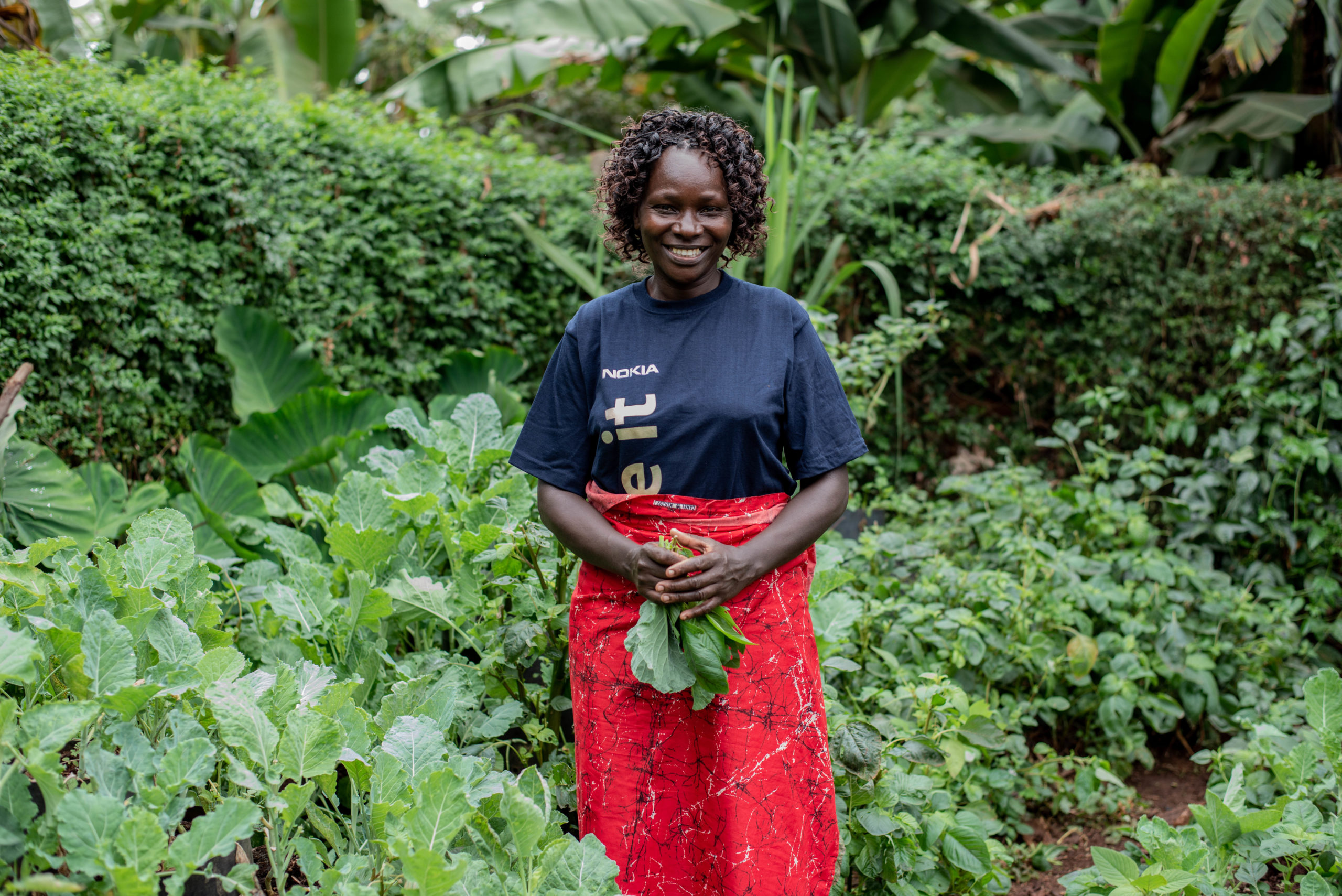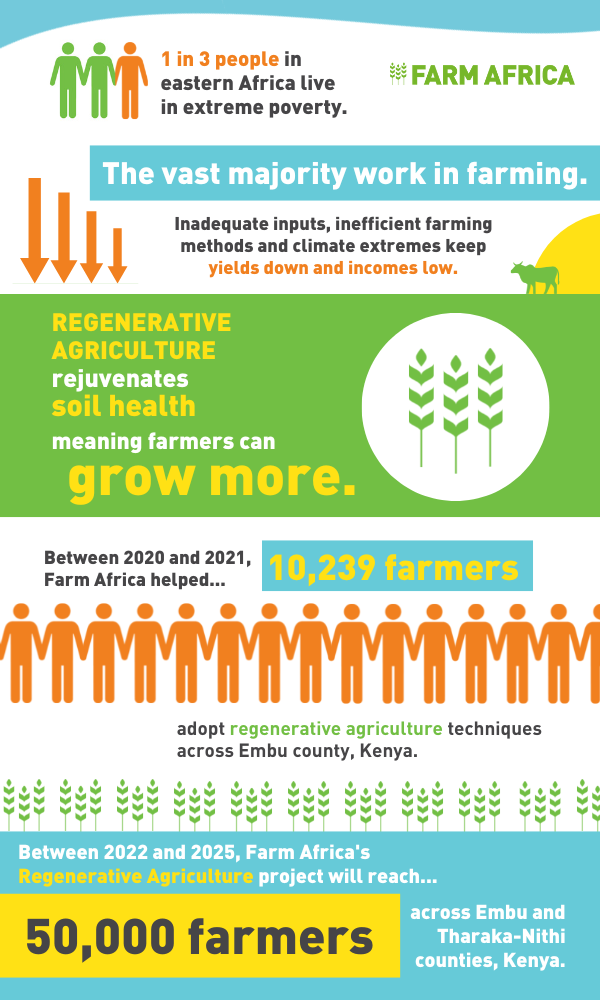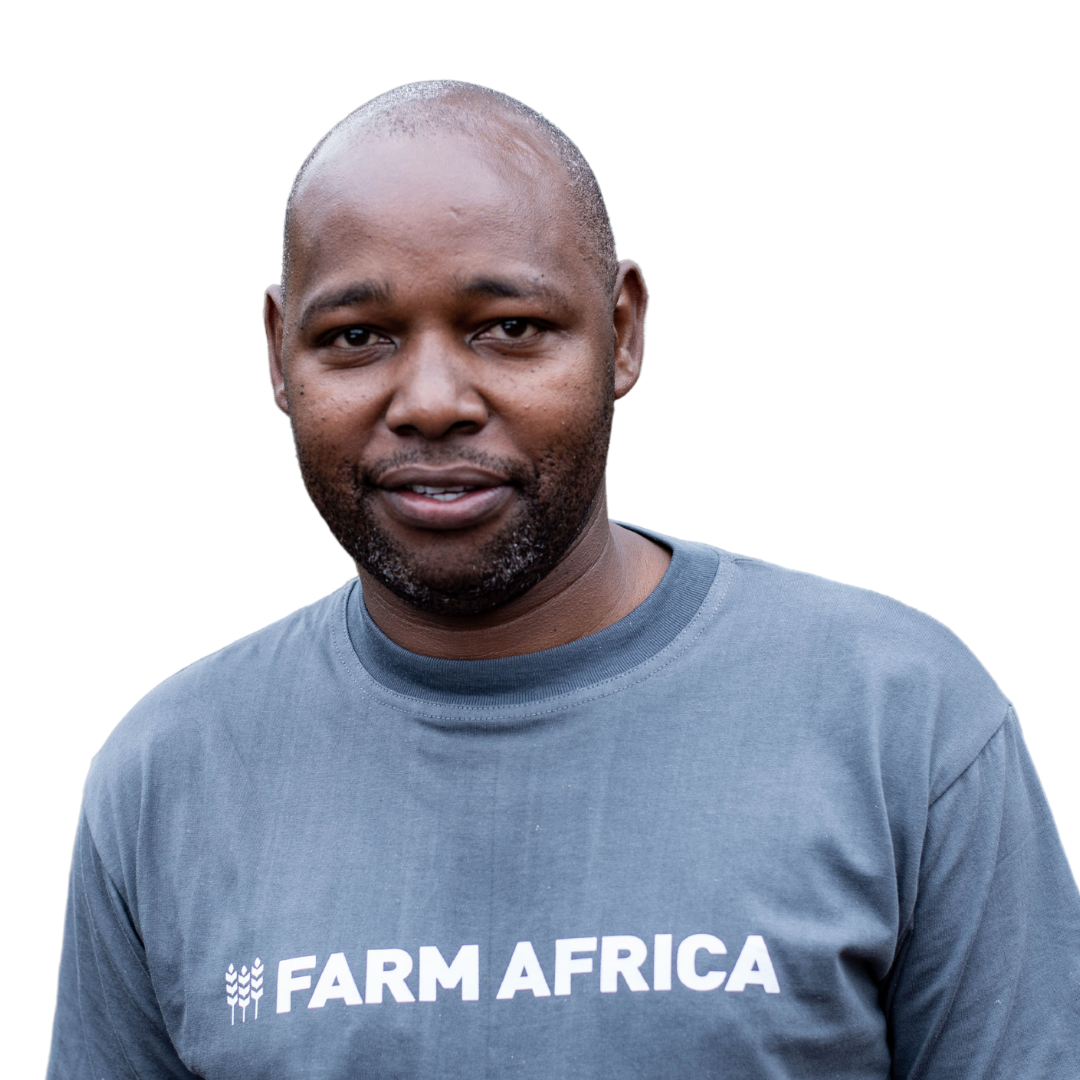Patrick Nyaga, Project Coordinator for Regenerative Agriculture at Farm Africa, explains how regenerative farming techniques can benefit farmers and the environment long term.
It’s not easy being a farmer in eastern Africa. Those who rely on the land to make a living face many complex, overlapping challenges, from conflict in the region to the ongoing effects of the COVID-19 pandemic, and, above all, climate change.
In Kenya, frequent extreme weather events and ongoing temperature changes are making it increasingly harder to work with the land. Punishing weather reduces crop yields and shifting temperatures alter ecological balances, bringing in invasive crop pests and diseases. The nutritional quality of cereals, the volume of productive land and biodiversity have all declined.
Farmers have to walk further in search of water and pastures due to resource scarcity, while the drought, which started in October 2020, has also increased the cost of foodstuff, threatening food security. Taken together, the situation is extremely precarious for farmers.
But there is good news: regenerative agriculture.
What is regenerative agriculture?
Regenerative agriculture allows farmers to continue to grow through uncertain weather patterns while replenishing the resources necessary for farming rather than depleting them. This approach rehabilitates the organic matter in the soil, increasing its carbon sequestration rate and safeguarding biodiversity.
Reducing soil erosion encourages water to infiltrate the soil, thereby protecting water sources. And since carbon is sequestered, greenhouse gas emissions are lowered. It is both an adaptation and mitigation strategy against climate change.
The term ‘regenerative agriculture’ covers many practices farmers can embrace. One example is planting nitrogen-fixing crops, such as beans and legumes. These crops provide essential nutrients to the soil, thus making it more fertile and helping the surrounding crops to grow.
Another method is intercropping. Unlike monocropping – the planting of just one crop – growing different crops simultaneously on the same plot of land can make the soil more fertile. These secondary crops support the primary crop by repelling pests or providing shelter. Plus, growing more than one crop means farmers have an additional source of income in case the primary crop fails.
Water conservation methods like mulching also benefit yields. Applying mulch – a loose layer of shredded plants – protects soil and supplies nutrition, as well as retaining moisture. This is essential to ensure yields are protected in the face of heavy rain or extreme heat.
Regenerative agriculture in action
Farm Africa’s Regenerative Agriculture Project in Kenya supports smallholder farmers to increase their yields in a way that protects the soil and the natural habitat.
Since 2020, Farm Africa and AGRA have been promoting regenerative agriculture through direct training to farmers, enhancing land productivity in Embu County. As a result, the 10,000 farmers who were engaged in the Regenerative Agriculture Project reported a 20 per cent increase in harvest, thus escaping total crop failure following the reduced rainfall in 2021.
The improved production was attributed to regenerative agriculture practices such as cover cropping, mulching, intercropping and more. These were found to have contributed to reduced moisture loss and soil enrichment that strengthened crop resilience to drought. Farmers therefore could continue to grow crops such as maize and beans, highlighting the endurance of regenerative agriculture in the face of tough circumstances.

Juliet Muthoni, a beneficiary of Farm Africa projects, poses for a photo at her home in Embu.
One farmer now enjoying the benefits of regenerative agriculture is Juliet Muthoni. Before joining the project, she encountered several obstacles in her practice: ”I face many challenges in my farming business. Prices are high for fertiliser, seeds, labour and other inputs, while rainfall is low.”
However, after adopting techniques such as mulching and applying manure as taught by Farm Africa, Juliet started to see rapid improvement. “Thanks to these techniques, last year we enjoyed higher yields.”
She goes on: ”What Farm Africa has taught us about using regenerative agriculture has been very helpful, given our challenging circumstances. The two most important techniques that we have been taught are manuring and mulching. Applying manure helps the plant become strong and mulching reduces water evaporation from the soil surface. Even if it does not rain for weeks, the plant will still have water.”
Thanks to the success of this initial work, the project will be phased up between 2022 and 2025, where Farm Africa will reach 50,000 farmers across Embu and Tharaka-Nithi counties in Kenya.
Forward-thinking farming
Given the range of challenges facing food growers in eastern Africa, farmers need a farming practice they can rely on to produce high yields through tough times. Farm Africa’s project shows that regenerative agriculture provides a solution to a range of farming challenges. The numbers prove this, as do the encouraging testimonies from participating farmers like Juliet.
Regenerative agriculture is a long term farming method. Years of mono-cropping and unsustainably using fertilisers have left soils depleted. Such short term measures are both damaging and unsustainable. In a time of increasing climate uncertainty, we cannot farm just for today. We need forward-thinking farming.

Regenerative agriculture infographic.
Images: Farm Africa/Brian Ongoro




Comments
I would like to connect with you on the topic on Regenerative Africa in Embu
Hi Elizabeth, if you’re looking to connect with Farming First, please send us an email at [email protected]. If you’re interested in connecting with Farm Africa, you can contact them at [email protected].